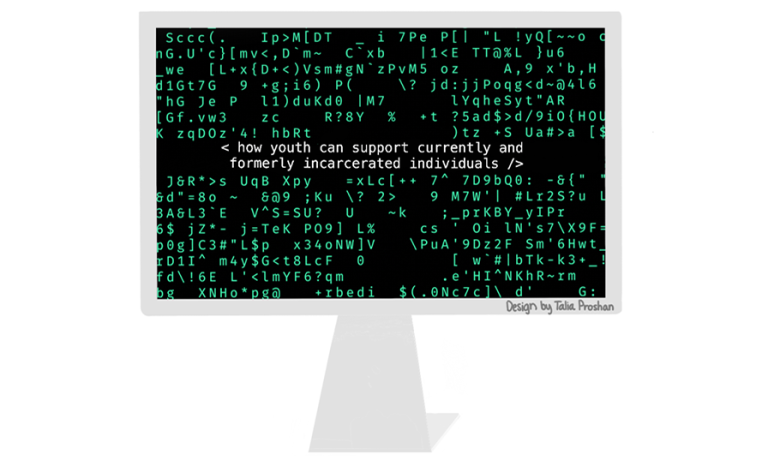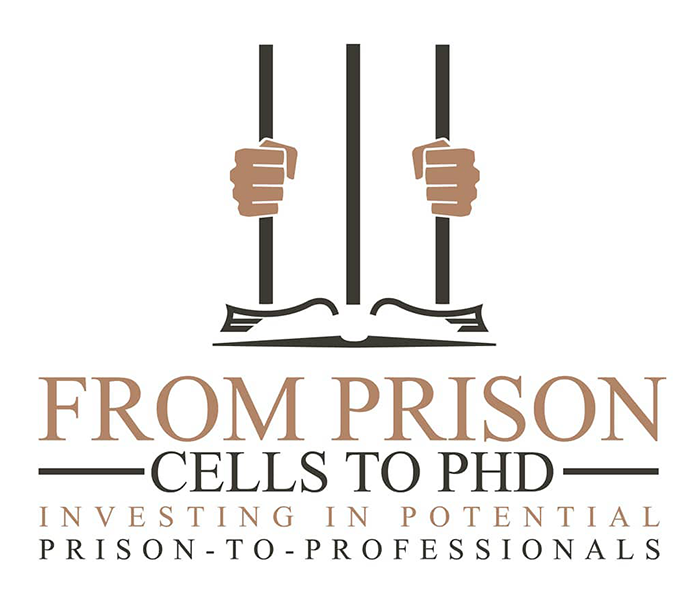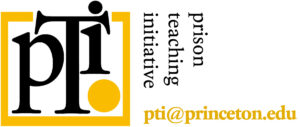Youth Advocacy for Justice-Impacted Persons

Author: Talia Proshan, Junior at Ethical Culture Fieldston School, Intern at From Prisons Cells to PhD & Womxn’s Cohort Light to Life
This is the first in a series of blog posts written by Talia Proshan for the benefit of the STEM-OPS community. While this blog series describes how youth can support those who are justice impacted, STEM-OPS acknowledges that the areas of support discussed—providing access to STEM education, teaching coding, penpal writing, etc.—are all the responsibilities of our local and federal government and other adults working in the private and nonprofit sectors to provide. That said, there are some youth who will have more direct opportunities to support people who are justice impacted; this support should always be carried out with the oversight of their families and/or other caring adults.
_____
As a freshman in high school, I knew very little about the carceral system or its deleterious impact on all who experience it. One cold winter day, I attended a Zoom presentation my sister hosted at her university, where she interviewed a formerly incarcerated woman about her experiences behind bars. Hearing this woman’s chilling story was just the beginning of my journey learning about the deep injustices within the carceral system. As I sat there, horrified at the mistreatment this woman faced, I knew that I was not doing enough to fight these injustices, and being a teenager was no excuse to sit idly by. Yet, the sheer magnitude of these abuses overwhelmed me. I questioned if I, a teenager on the outside, had any ability to help those facing grave, ingrained discrimination. I would soon find out that today’s youth are in a unique, powerful place to help, specifically by using technology. Here are some of the ways they can do so with their knowledge of STEM.
As of late April, there were estimated to be 450,000 unfilled jobs in cybersecurity. To fill these jobs, an increasing number of tech companies have dropped the requirement for a bachelor’s degree for middle-skill and higher-skill level jobs, according to a Harvard Business Review study. Based on the study, they predict 1.4 million jobs without a college degree requirement will open up in the next 5 years. Companies will instead look for a specific skill set suited for the job. Many formerly incarcerated people face barriers to obtaining college degrees, and while advances to receive such degrees are underway, these technological changes open up critical spaces in the tech world for them.
To access these opportunities post-release, one must learn to code. Yet, it is difficult to attain these skills when most incarcerated people do not have access to technology or sufficient educational opportunities.
Youth should advocate for access to computers and other technology in prisons that would allow incarcerated people to be trained in computer skills and have other online education opportunities. All incarcerated people should have the chance. We can work together and create movements, as well as write letters to legislators pushing for this cause and other issues affecting mass incarceration.
Lastly, it is important that the general public be educated on the issues relating to mass incarceration. Yet, mainstream news often neglects discussions of the inhumane conditions within prisons and jails. Youth can play a huge role in spreading information on social media and other online platforms. Disseminating information is important, as this gives others knowledge to mobilize themselves in support of the movement to end mass incarceration.
As the Zoom call with the formerly incarcerated woman came to a close, I realized there were steps I could take to support the issues she noted. Since then, I have been involved in various aspects of this important movement. The younger generation has the ability to play a huge role in the movement against mass incarceration. It is only a question of how.
_____
Please take 1 minute to fill out this survey about how this blog post may have influenced you or helped you learn new information. Your response will help STEM-OPS learn about our shared impact on messages about people impacted by incarceration and help us improve our approach to changing societal narratives.





